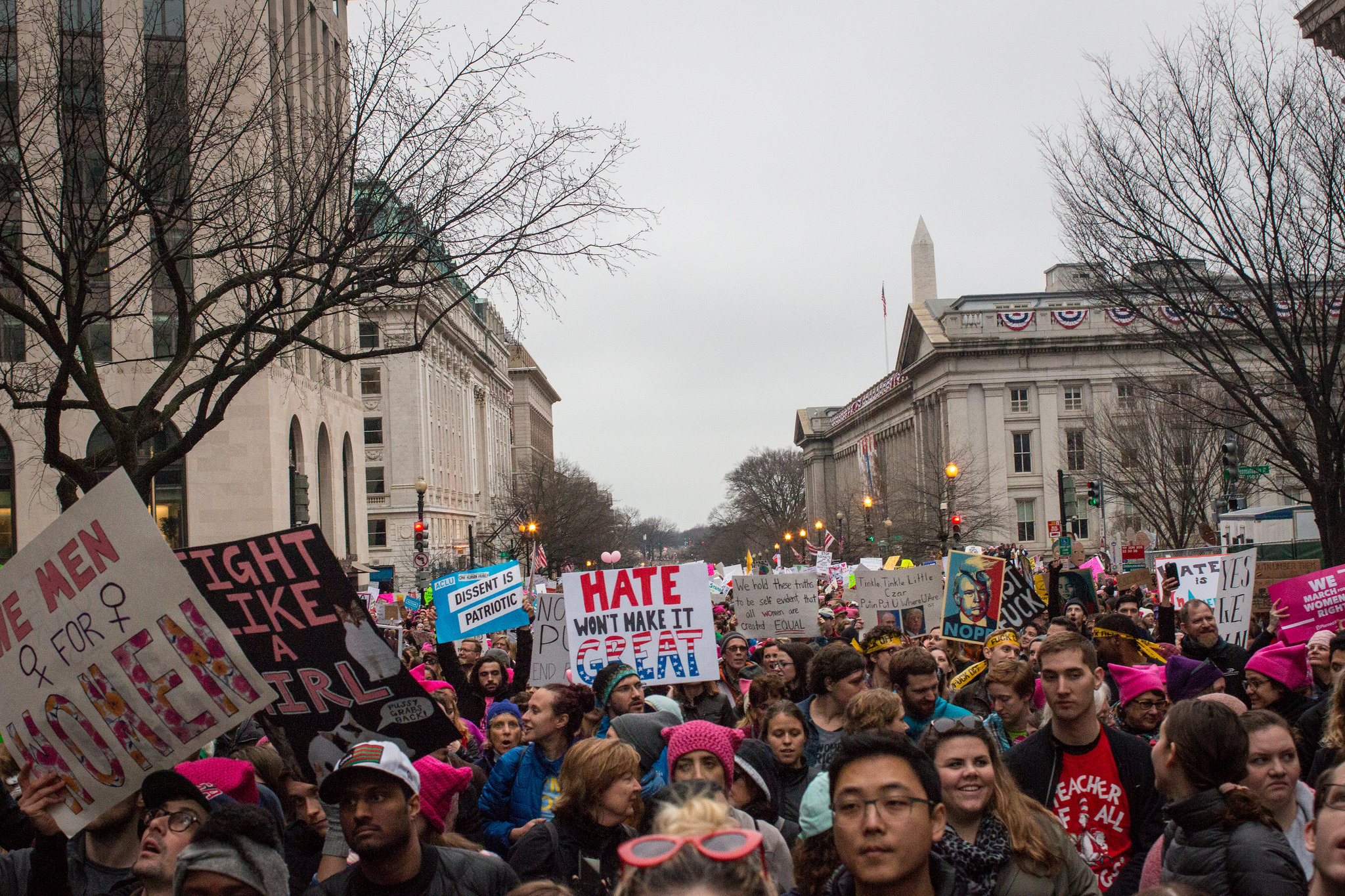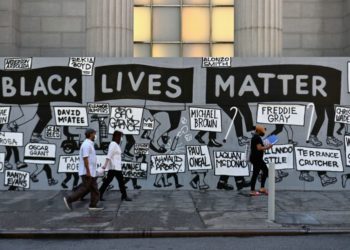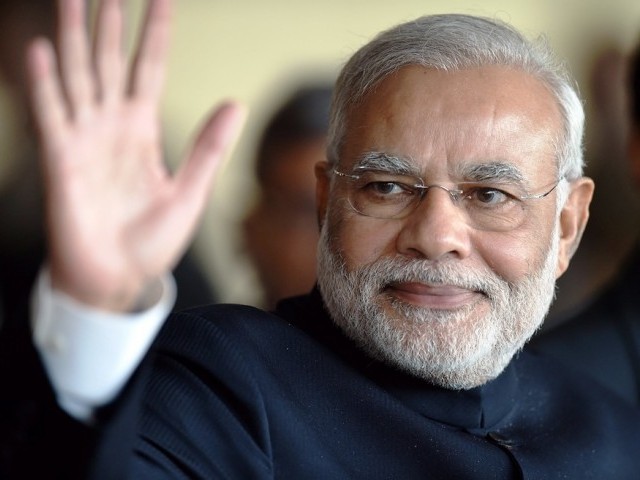In January 2017, hundreds of thousands of people turned out across the United States for the first Women’s March, united by their disdain for President Donald Trump, who had taken office the day before.
On Saturday, the third edition of the protest will bring tens of thousands of Americans into the streets, but the movement has been dampened by allegations of anti-Semitism against some of its leaders.
The main march will take place in Washington from about 10:00 am (1500 GMT), while other demonstrations are scheduled in cities across the U.S. and around the world.
Last year, more than 500,000 people – boosted by the “#MeToo” and “Time’s Up” movements against sexual violence and harassment made their voices heard. Many wore pink “pussy hats” as a symbol of strength.
This year, to mark “two years of resistance to the Trump presidency,” organizers have called on demonstrators to “flood” the streets – using the hashtag #WomensWave.
The march comes as a record number of women – 131 – are serving in the new Congress.
Protesters have been galvanized by the confirmation of conservative judge Brett Kavanaugh to the U.S. Supreme Court, despite allegations that he committed sexual assault during his teen years.
Women activists are also motivated by the fight over the Trump administration’s policy – largely since suspended – of separating undocumented parents from children at the border with Mexico.
And they are up in arms about statements by the Republican president – accused by several women of sexual misconduct – that they see as sexist or racist.
Why This Matters
But for several months, the Women’s March movement has battled public relations problems, with several officials accused of anti-Semitism.
At issue is co-founder Tamika Mallory’s ties to controversial Nation of Islam leader Louis Farrakhan, and her failure to condemn disparaging remarks about Jews he made at an event she attended.
Mallory, who is black, has also taken to social media to criticize the Anti-Defamation League, one of the most prominent U.S. groups tackling anti-Semitism.
The backlash surged back into the headlines in December.
Tablet magazine, which focuses on Jewish life, said that Mallory and Hispanic activist Carmen Perez had told a Jewish march organizer, Vanessa Wruble, that Jews bore special responsibility for racism and the slave trade in America.
The remarks – denied by Mallory and Perez – were allegedly made in November 2016, Tablet reported.
This past November, Teresa Shook, the first woman to float the idea of a women’s march, called for the movement’s four co-presidents – Mallory, Perez, Linda Sarsour and Bob Bland – to resign over the scandals.
Sarsour denied the allegations, saying in a statement: “The Women’s March exists to fight bigotry and discrimination in all their forms – including homophobia and anti-Semitism.”
And the organization had explicitly said that it did not “support or endorse” statements made by Farrakhan.
But the controversy has driven some women to align with Wruble, who left the Women’s March and founded a parallel organization, March On.
What’s Next
In January 2018, the two groups marched side by side at events in New York and Los Angeles.
But on Saturday, they will march separately, and March On says it will not participate in the Washington rally.
For Sharon Lin, a doctor and mother of two who says she will march on Sunday in New York, the divisions don’t matter much.
“The original intention is still there: the masses coming together and saying, ‘We don’t like the way our country is going,'” she told AFP.
More on the Subject
The #MeToo movement helped sweep Democrats to victory in November’s midterms, but some of the party’s leading lights, including potential 2020 candidates, face scrutiny from the women’s anti-harassment drive that brought men to account for sexist behavior.
Their campaigns, and those of others, could either be boosted or tainted by the fight for gender equality in the run-up to 2020.
“Clearly, it’s going to play a role,” David Redlawsk, chairman of the political science department at the University of Delaware, told AFP.























